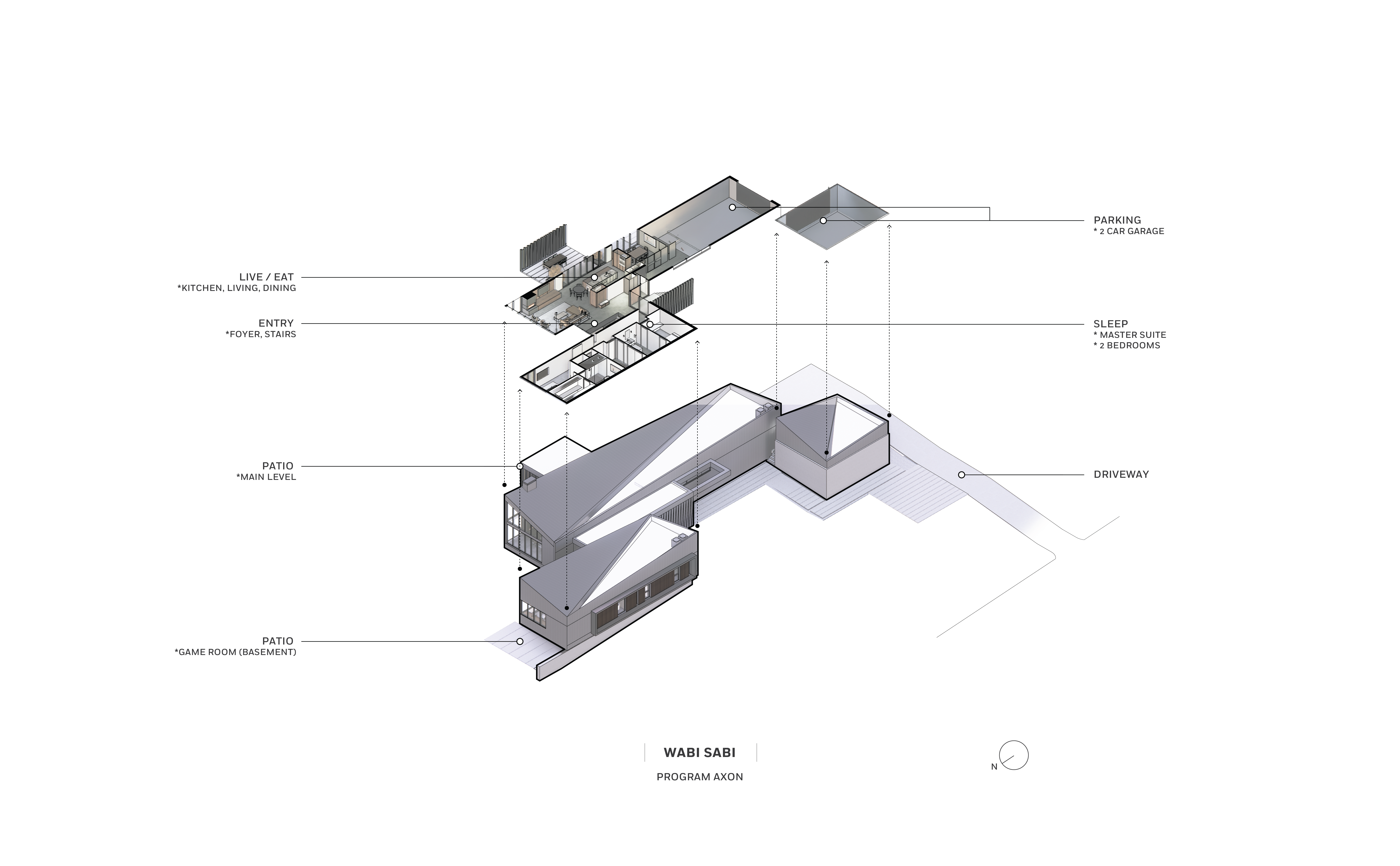Recent Project
Wabi Sabi _ 2023
Embracing Imperfection with Timeless Design
The Wabi Sabi House, designed for a Japanese-American couple, uniquely redefines design paradigms to create a home that is distinctively modern while celebrating the beauty in imperfection. The house is composed of two distinct blocks: one for public living spaces and the other for private bedrooms. Unlike the typical long bar with a gable roof, these blocks are separated and feature shed roof pitches that twist from one corner to the other, reminiscent of a folding origami sculpture. The brickwork is equally unique, with alternating bricks pulled out at the corners to create intriguing shadow patterns. An angled entry screen adds to the sculptural quality of the design. Each of these elements is slightly unconventional, contributing to the visual interest and embodying the Wabi Sabi philosophy.
Inside, the design prioritizes views and natural light. Despite being located in a suburban neighborhood, carefully curated window openings ensure all views are private and focused on nature. Daylight software was used to optimize glazing, maximizing natural light while minimizing heat gain. Subtle light coves enhance the natural materials and emphasize the home’s folding forms. Hufft custom-fabricated much of the interior. The cabinetry features minimal reveals and highly detailed interiors. In the west-facing dining room, a custom screen made from perforated recycled paper and walnut was also inspired by folded origami forms. The kitchen’s stone, the house’s boldest feature, surprises first-time visitors with its vibrant pattern, epitomizing the Wabi Sabi concept of finding perfection in imperfection.
Despite the unconventional aesthetics, sustainability remains a priority. A solar array on the roof provides most of the home’s power. Natural lighting reduces daytime energy needs, and efficient LED fixtures illuminate the house at night. Water use is minimized through low-flow fixtures, and the landscape design requires minimal irrigation. All interior materials are locally sourced and finished with water-based products. The Wabi Sabi House makes a bold statement in a typical Midwestern suburb.
